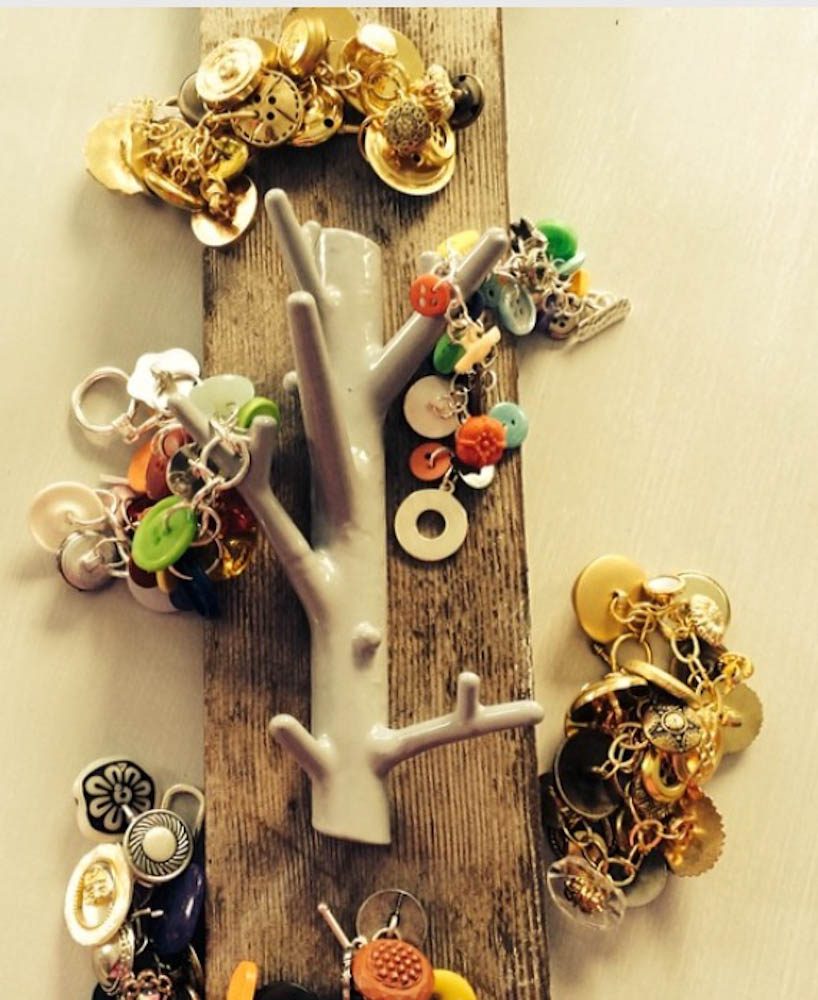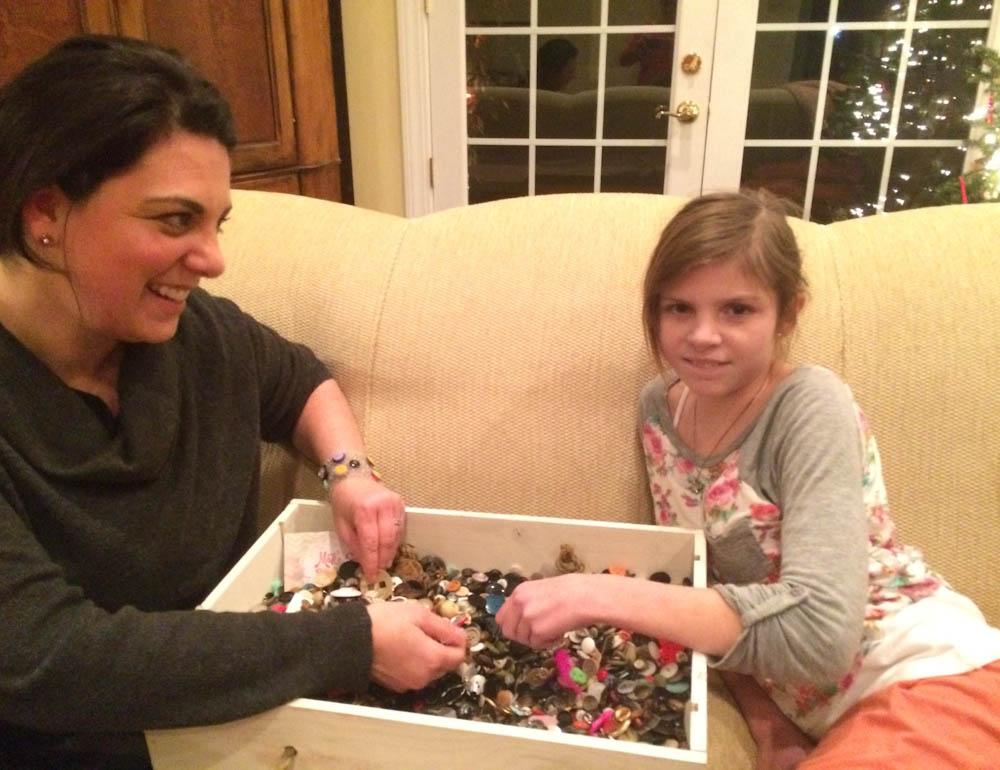
As a girl, Paula Kaufman loved playing with the buttons that her grandmother, a seamstress, had in abundance. Later, while in treatment for stage III colorectal cancer at Dana-Farber Cancer Institute, Kaufman – then a mother of three in her late 30s – gained strength from a jar of buttons her grandmother bequeathed to her.
“When you have cancer, you feel like you’re hanging by a thread,” Kaufman explains. “The connections you make with other people are the buttons that pull you through.”
Kaufman’s caregivers, family, and friends served as her buttons, and she drew further comfort from Reiki, a hands-on integrative therapy she credits for alleviating nausea and other treatment side effects. Now a certified Reiki master who has been disease-free for five years, she is helping adult and pediatric patients and their families through private Reiki sessions mixed with something she calls button therapy.
“Instead of paying me, I ask people to exchange buttons,” says Kaufman, of Framingham. “This makes us button buddies, and serves as our way of connecting as survivors.”

Christine Robinson says sessions with Kaufman have been wonderful for her daughter Abby, 11, who suffers from severe fatigue related to her treatment at Dana-Farber for T-cell acute lymphocytic leukemia (ALL) seven years ago. “The Reiki helps clear her head and gives her a positive energy to feed off, and Abby really looks forward to picking out her buttons,” says Robinson. “There is something special about Paula that just makes Abby feel safe. I feel it too.”
Because Kaufman knows the toll her 2009 diagnosis took on her own children, she also treats children of active and former patients. Caroline Ferrante, a breast cancer patient at Dana-Farber, says that the Reiki-button therapy experience has helped her 12-year-old daughter, Sophia, face fears about her mother’s health.
“Sophia is usually very quiet and reserved,” says Ferrante. “The first time Paula told her to pick out two buttons, she pulled out one that had a heart on it and one that looked like it came from an Army uniform. Paula said, ‘That’s you! Soldiers are brave, and I’m going to call you Braveheart from now on.’ It made Sophia feel so proud, and really opened up the floodgates of communication.”
Kaufman carries a large box of buttons for Sophia and other button buddies to choose from, and those she receives in return often have special meaning. Clients have buttons sent to her from around the world – including Portugal, Israel, and Italy – and some are taken off of the uniforms and robes of military veterans and religious figures.
Using many of the buttons given to her by patient families, Kaufman created a pair of meaningful gifts: A jar full of buttons for her oncologist, Jeffrey Meyerhardt, MD, and a bracelet for Meyerhardt’s wife for “sharing her husband” with his patients.“I was taken aback by that, and really humbled,” says Meyerhardt. “My wife, who is a primary care physician, was as amazed as I was by Paula’s generosity toward other patients, and we were both touched to receive such gifts.”
Meyerhardt says his wife wears her bracelet often, and notes that every time he looks at the jar of buttons in his office, a different one stands out. Kaufman is not surprised. After all, she says, every button tells its own story.

This beautiful woman is my niece, and she is amazing! She is the type of person that when you are with her you feel better about yourself in an instant. I love the button story and she is an inspiration to all that know her. Paula Rocks!